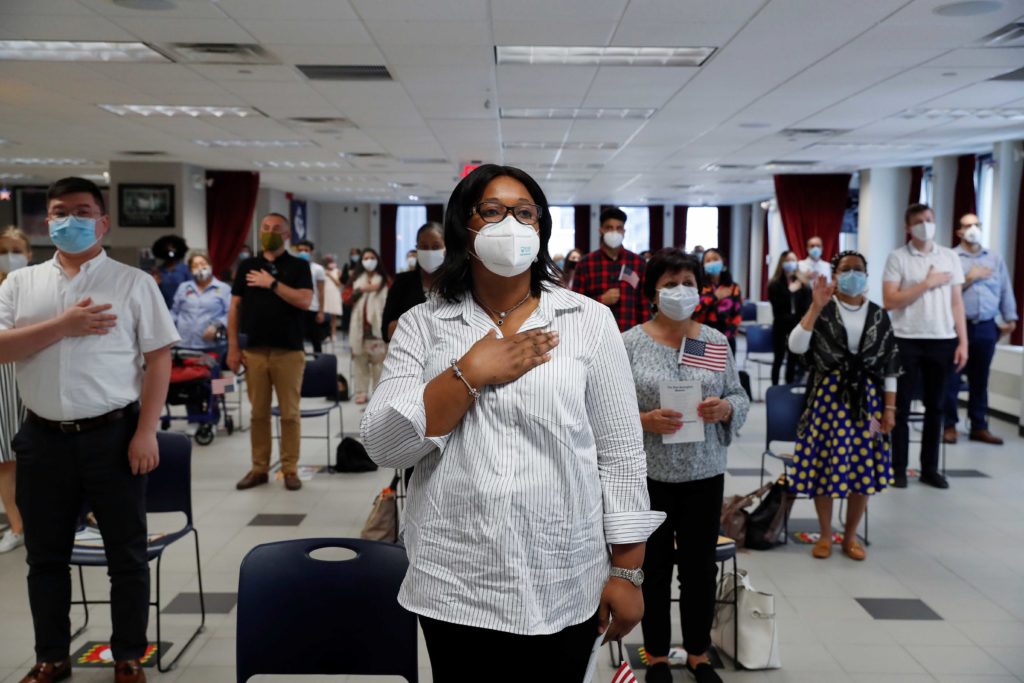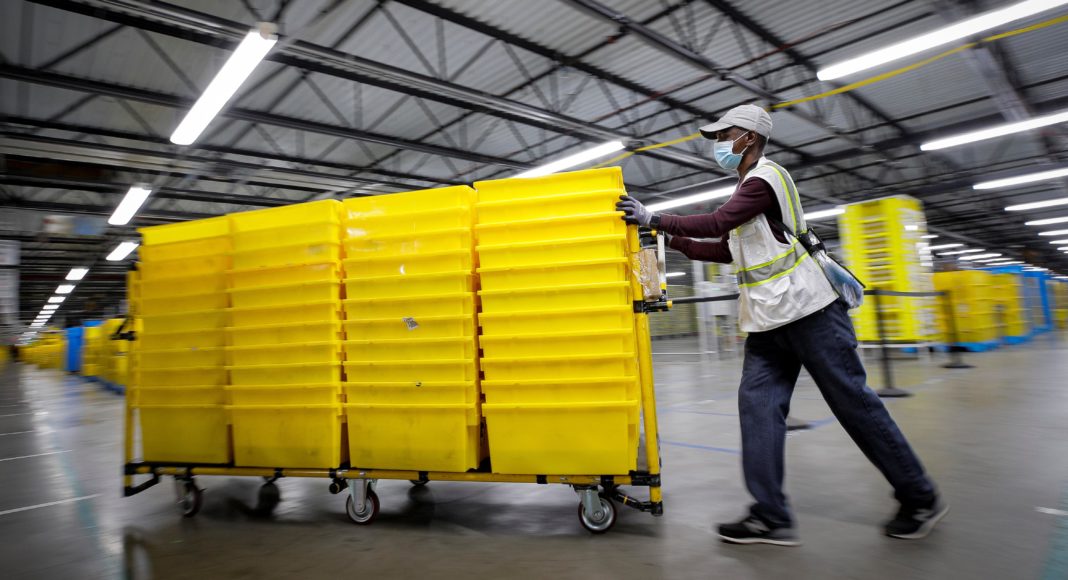By Damilola Banjo
At 55, Monsumola Adeniran should be planning her retirement. She had built a flourishing textile business and lived an upper middle-class life, wearing flamboyant head pieces, gold necklaces and heavy makeup.
Adeniran sold all kinds of patterned textiles and African prints she imported from across the continent, in Lagos, Nigeria. She traveled to Senegal, Guinea and Ghana for the best fabrics. But in 2016, her business started to crumble. Foreign customers who patronized her stopped ordering.
It was not the first time she experienced hiccups in the industry, she said, but unlike previous setbacks, she couldn’t recover. Instead, she watched her inventory dwindle and her clients disappear, forcing her to make the hard decision to leave her country. In 2018, Adeniran moved to the United States, and now lives in New Jersey.
At her age, she imagined life would be much easier, and that she would be able to rest and relish being a happy grandmother. But as an undocumented immigrant, forgoing an early retirement was the trade-off for starting over in the United States. “I was scared. I didn’t know what to do,” Adeniran explained. “I sold what was left in my three shops to process my traveling,” she said.
Many Nigerians who recently relocated to the U.S. in pursuit of better opportunities are finding the reality harsher than they’d anticipated. Some are burdened by their immigration status, leaving them in low-paying jobs while still having to perform the impossible task of supporting relatives back home. Adeniran arrived on a visiting visa, and because she is undocumented she could only find work in a factory.
Immigrants like Adeniran, who once had successful businesses or are highly educated with university degrees, have to start from the bottom once they arrive, leaving them financially stuck—the very situation they were escaping in Nigeria.
It’s a choice many immigrants have made: taking a risk to live in poverty in the United States, with the hope that they’ll still have more opportunities here than back home. In Nigeria’s harsh economic environment, it’s common to see small businesses fold. In 2020, the nation ranked 131 out of 190 in terms of ease of business ownership, according to the World Bank.
But even though her life in the U.S. has comes with a diminished social status, Adeniran prefers it to the one she left in Lagos, she said. This sentiment is shared by many immigrants who prefer their life in the U.S. despite its difficulties, because they can count on social welfare programs and a strong currency, two things that are lacking in Nigeria.

According to Pew Research Center, 46% of Nigeria’s 206 million residents have considered leaving the country, with the United States, Canada and Australia their top destinations. Many of its residents are trying to escape poverty in a country where 40% of the people live below the poverty line, surviving on the equivalent of $382 a year.
Amarachi Okpe, 23, entered the U.S. on a visiting visa in 2019. Her plan was to enroll in a school for her master’s degree, but that goal is on hold. Although she graduated with a degree in sociology from one of the best universities in Nigeria, she is currently not earning enough to even afford her most basic needs, she said.
“It’s hard. Really hard,” said Okpe, who shares one room with someone and spends two weeks-worth of checks to pay her rent and utilities.
According to the census, 258,540 Nigerians live in the U.S. In 2019, some 20,000 Nigerians overstayed their visas, meaning they were undocumented and ineligible to work in the U.S., leaving most of them menial jobs regardless of education or experience.
A minimum wage factory job is all that is available to Okpe, since such jobs often require very little documentation. She has no health insurance and all of her expenses must be covered by her $15 an hour wages loading cargoes.
When Okpe told her friends in Nigeria that she wasn’t on social media because she did not have internet service on her phone, they did not believe her, she said.
“The sad part is, people at home don’t know what you’re going through,” she said. “They expect you to send money home. Your parents, your siblings, your friends— everyone wants money from you.”
It’s almost impossible for undocumented immigrants to build wealth in the United States, said Rupal Parikh, a U.S. immigration lawyer. They are unable to find good-paying jobs, and worry constantly about being picked up by the police.
Victor Akinwande, 50, has been in the U.S. as long as Okpe and Adeniran. He relocated with his wife and four children to live in Newark. Akinwande and his wife, Folashade, are part-time workers at a FedEx warehouse in the city. They work six hour shifts every night to supplement their meager income from their day jobs. Akinwande hardly sleeps, hopping from one job to the other.
He was a successful entrepreneur in Nigeria, he said. He had employees and made enough to care for his family. He came to America to fulfill his dream of being a “serial entrepreneur” he said, an ambition he felt he couldn’t achieve in Nigeria.
“The only thing slowing me down is my papers,” Akinwande said. “Once I have my papers, I can start doing all the things I have planned. This FedEx work is temporary. I do it so that we can cover some bills as a family.”
Becoming a legal resident in the U.S. is expensive and differs for individuals, said Parikh. It also takes time, she added. The process is complicated because not just anyone can seek asylum or marry an American citizen.
Sometimes Adeniran misses home, she said. She misses her friends, the parties and the prestige. There are no children or maids to help with the numerous house chores she now does by herself. She looks nothing like the socialite she was back in Lagos.
But she says she has no regrets. “It is better to be poor here than to be poor in Nigeria,” she said. “Things are difficult but at least I can eat what I want and send some money back home.”

